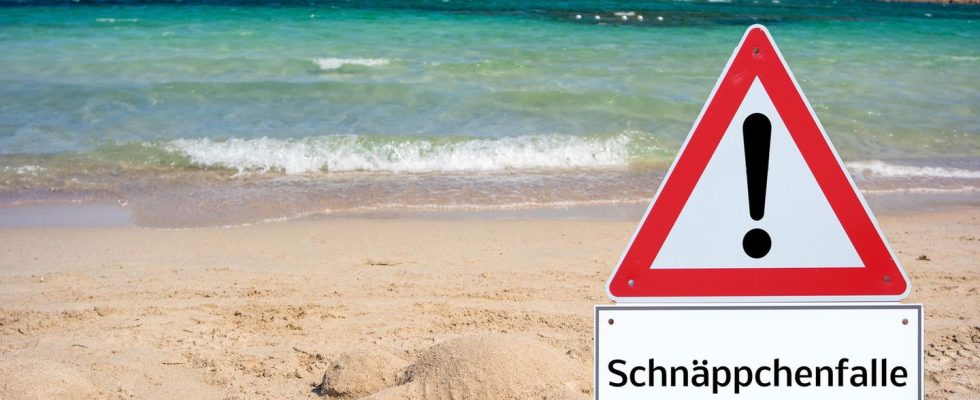Beware fakes!
This is how you protect yourself from fraud with the holiday accommodation
© Animaflora PicsStock / Adobe Stock
Imagine you arrive at your holiday destination with the whole family and full of anticipation and want to move into your holiday home. And you realize: The cottage you booked doesn’t even exist.
Unfortunately, this nightmare scenario is not that uncommon. There have never been so many holiday home fraud sites on the Internet as in 2023, reports the “Association of German Holiday Home Agencies” (VDFA eV). The amount of damage has already been in the double-digit million range in the last two years. “It’s desperate,” says managing director Monika Kowalewski. “Right now, in the high booking season, scammers are striking again and the number of fraudulent domains is increasing by the day.”
Another scenario is that you pay full price for a vacation home or apartment – and then get a cancellation but never see your money back. These vacationers described to the VDFA how perfidiously the fraudsters act:
Unfortunately, we fell for the Mallorca pros. Now we are 1049 euros poorer, but also smarter. Yesterday we received a cancellation from the landlord with an alleged refund of the amount. However, all communication channels are already offline, and the website is no longer accessible. Tomorrow we will file a complaint against an unknown person. The website looked really professional, the e-mail traffic worked and questions about the property were answered immediately.
How to recognize fake websites
The scammers usually choose coveted holiday regions. The North and Baltic Seas as well as Bavaria and the Balearic Islands are particularly affected.
1) Beware bargains: The prices on the fake websites are extremely low compared to legitimate providers. That alone ensures that many book the supposed bargain immediately. But that’s not all. With a 100 percent deposit when booking, there is an additional 10 to 20 percent discount on the low price. “It was too good to be,” says Kowalewski.
2) Copied layout: Fraudsters often use the layout of well-known websites and only exchange the logo, company name and contact person. Please always check in the imprint whether a company headquarters and a tax number are given.
3) Lack of reviews: Providers that have been on the market for a long time have many ratings. Check if the site has reviews from previous years.
4) No availability calendar: It is common for houses to have an availability calendar on the supply side. You should be skeptical about providers who work without calendars or only present green (“everything free”) calendars.
5) Payment abroad: A landlord from Germany should also have his money transferred to Germany. If the payment is to go abroad, check exactly who you are transferring to. A transfer e.g. B. to England or Lithuania (for the landlord from Germany) you should always question, because the scammers are usually based outside of Europe.
6) Providers are only available as advertisements: The scammers often work with Google ads. Certain search terms (e.g. “holiday apartment Mallorca”) are bought so that they appear at the top of the search results. On Google, you can recognize ads by the word “Sponsored”. Tip: If you google for a scam website, it won’t show up in the normal search results.
On the website www.gemeinsam- gegen-ferienhausbetrug.de you can find more tips.
These websites are fake
Destination Germany
- widekamp.com
- lenz-anderson.com
- ferienhaus-profis.com
Destination Majorca
- finca-agentur-voelkl.com
- mallorca-booker.com
- www.mallorcaprofis.com
- www.traumfincas-auf-mallorca.de
- www.mallorca-experten.com
- www.mallorca-partner.com
- www.finca-experten.com
- www.finca-booking.com
Beware, there are many more scam websites out there and new ones almost every day!
What to do if it happened
If you have become a victim of holiday home scams, you should immediately inform the portal operator (if there is one) and report it to the local police.
Sources used: VDFA, Verbraucherzentrale Rheinland-Pfalz
